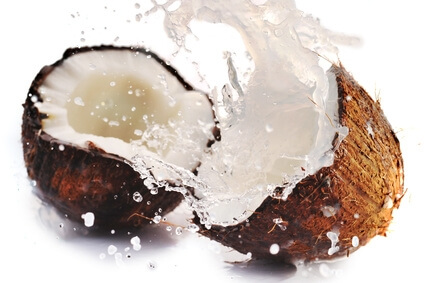
Debunked


As always, I don’t have to look far for inspiration for my next piece. This time it came in the form of a dinner party at a beloved aunt’s home. She assured me, as I reached for a deep-fried snack that it was perfectly healthy and I could gorge myself silly on them because she’d fried them in coconut oil.
Coconut oil – be it online on social media platforms or on grocery shelves. It IS the super-food du jor. The sweet-smelling tropical staple is rumored to slow aging, help your heart and thyroid, protect against illnesses like Alzheimer’s, arthritis and diabetes, make your teeth luminescent white, boost skin glow and of course, make you lose weight. People are using it in everything from smoothies to bulletproof coffee (a mug of java spiked with coconut oil), even heaping it onto popcorn and throwing it into cookie batter instead of butter. Usually in the hopes of a smaller waistline…
Which makes it downright confusing when the FDA has given a particular brand of coconut oil a slap on the wrist for marketing it by using unsubstantiated health and nutritional claims. The brand leveraged the oil to “cure” patients with HIV. If it weren’t appalling cruel, I’d laugh. Have we all gone (coco)nuts?
Note that coconut oil is NOT indeed ‘new’. It has been around for thousands of years as a staple favorite of many, many diets and lifestyles. We just needed something new to move on from barking up the gluten-intolerance tree * rolls eyes *
My take? The next time you’re at the grocery store and staring up at shelves upon shelves of what is promised to be THE “miracle food”, bring out your phone and Google the word ‘miracle’. And if this nutty oil still appeals to you as an ‘extraordinary and wondrous elixir of life’ that’ll stave off Diabetes and get rid of that pudgy belly, then remember this edition of DEBUNKED ;-)

Juggling many roles from physician to writer to pilates instructor to Marketing-PR executive, Dr. Daamini is constantly pushed and inspired to get creative on how to encompass a Retreat into her daily life.
View Profile